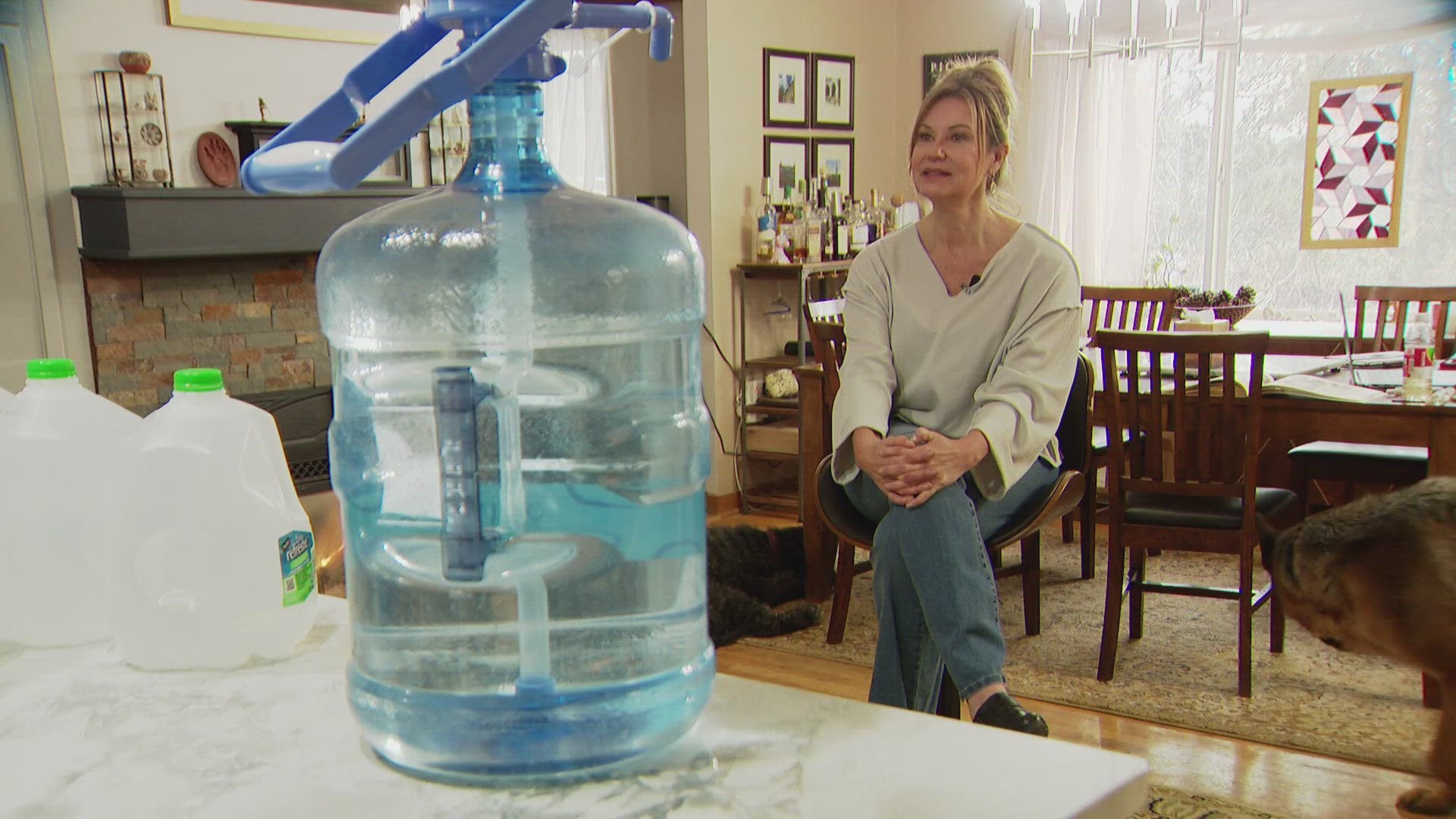INDIAN HILLS, Colo. — To boil or not to boil? That's the question many people in the foothills town of Indian Hills are now asking. It's been five days since much of the community had their taps run dry.
While the water district says their crews are working to find a leak, temporary fixes have water running for some residents. But after health warnings, some residents are worried about what's in this water.
"I think we all felt a little unprepared for this," resident Sarah Davidon said.
Davidon said her family lost water altogether on Saturday, and boil water orders had impacted the steady supply of water in the days before. So she and her kids turned to the snow outside for help.
"There's a bucket over there that has melted snow in it," Davidon said. "We probably made five or six trips out, and we tried to put it in front of the wood stove and it wouldn't melt and so we put it on the stove and were melting water and putting it into the back of the toilet."
She's even taken trips to neighboring towns to seek out safe drinking water.
“I made a stop at the grocery store and picked up some gallon jugs of distilled water," she said. "I had this five-gallon jug with the pump on it, so a friend and I went up to Kittredge, the next town over, you know, paid my dollar and got water from Kittredge to bring home. It all feels very primitive. But it felt like the safe thing to do."
Monday afternoon, the water was back on at her home and some others around Indian Hills. But that temporary supply came with a warning: the water contained nitrate levels that were higher than the maximum contaminant levels allowed.
"When there was clarity that there were nitrates in the water, it would be great if we could have some very clear non-technical information about what to do with that. Do we boil the water, do we not boil the water," Davidon said.
"Generally, a healthy adult drinking water at slightly above levels would not be a health concern," said Tyson Ingels, Engineering Section Manager for the Water Quality Control Division with the Colorado Department of Public Health and Environment.
Ingels said as long as it's boiled, the water in Indian Hills is safe for most people to drink, even with the nitrates in it. But it's not for kids six months old or younger, and you can't use it in baby formula.
“Nitrate is regulated in the federal Safe Drinking Water Act as an acute contaminant at 10 milligrams per liter. And what that means is water being served that’s above 10 milligrams per liter of nitrate should not be given, in any circumstances, to infants six months old and younger because of the risk of a condition colloquially called ‘blue-baby syndrome’ but I believe is technically called methemoglobinemia," Ingels said.
Ingels said the CDPHE doesn't have real-time data from the Indian Hills water district, but said they know one of the community's water sources is high in nitrate. But not all of their sources are, so the water can blend together.
"There’s a potential for it being above the 10 milligrams per liter," Ingels said. "Our understanding is the highest their source is in between 11 and 14 milligrams per liter. So not far, far above the maximum contaminant level, but just slightly."
Ingels said boiling the water in Indian Hills is recommended to remove any bacteria or microbial contamination in the temporary water supply.
But Dr. Julie Korak, assistant professor in the Department of Civil, Environmental and Architectural Engineering at CU Boulder, said boiling the water does not remove nitrate from the water.
"Boiling water can actually increase the concentration of nitrate, because some of the water evaporates while the dissolved nitrate stays behind in the remaining water," Korak said in an email. "Guidance from regulatory agencies typically recommend bringing water to a rolling boil for 1-3 minutes before letting the water cool. The time is recommended to be effective against microbial contamination without losing a significant amount of water to evaporation, which would concentrate nitrate."
Five days into the water shortage, the Indian Hills Water District reports they're still looking for the leak that caused the problems in the first place.
Monday afternoon, the water district set out a station for residents to come get potable water, but they have to bring their own containers to fill up.
Michael Persch said he was happy to fill up after he and his wife spent these past few days without a steady supply of water.
“We’ve been melting snow and you know, life isn’t too much different. We still have internet and we still have heat, so you really can’t complain. We’re not Amish yet," Persch said. "All fine except for the no showering. But there's rec centers so I guess we get to pseudo-live our pandemic van life by showering and brushing our teeth in the local rec center, so that's kind of fun."
Still, Persch and many in town are hopeful that someone can find this leak soon.
"Yeah, hopeful it will be resolved by the end of the week," Persch said.
9NEWS reached out to the Indian Hills Water District. They declined to comment, with one person saying they'd been told not to speak with the media about these issues.
SUGGESTED VIDEOS: Latest from 9NEWS

